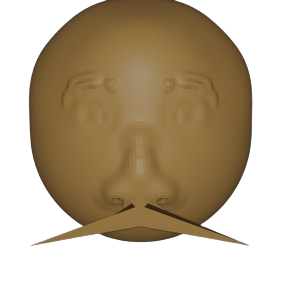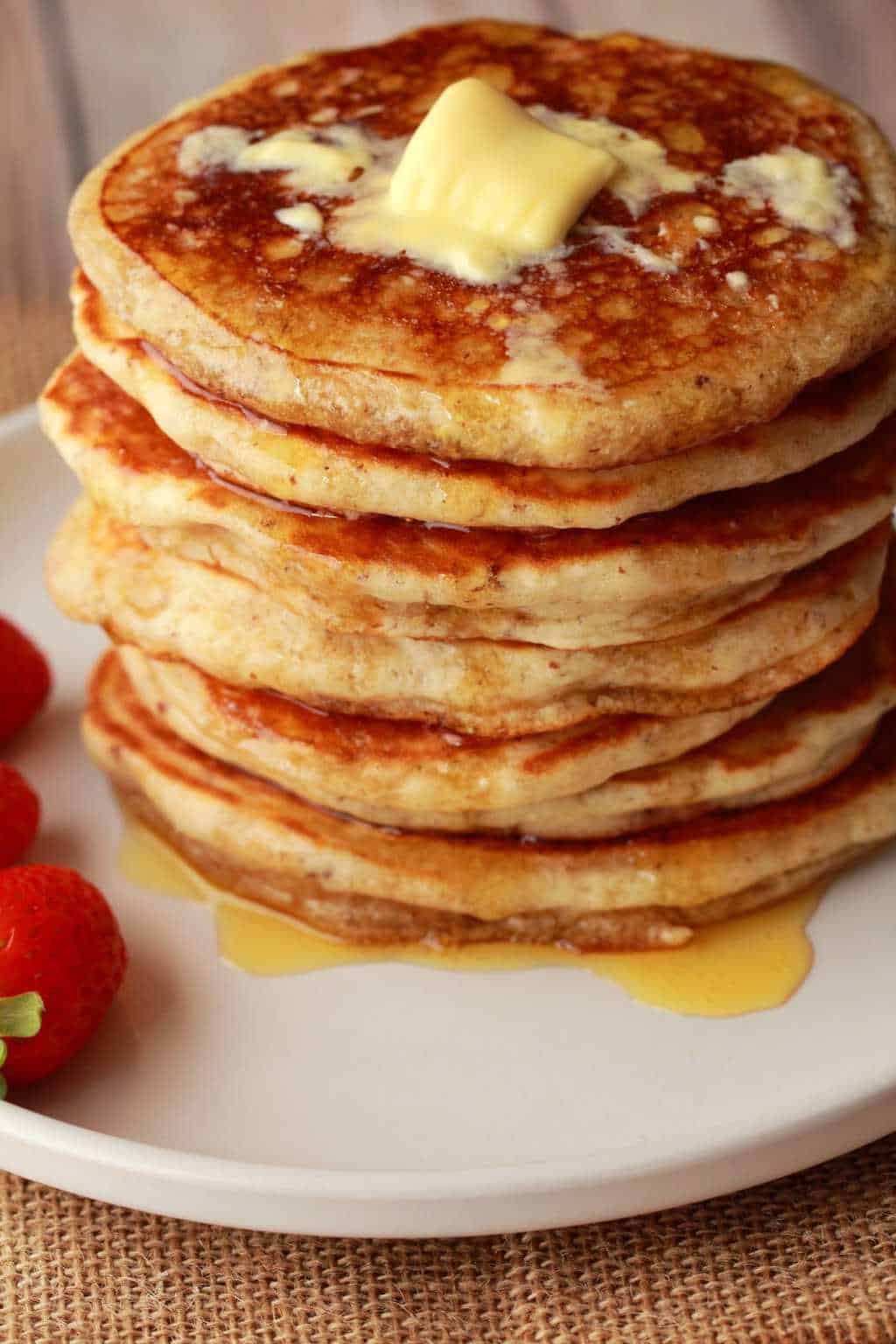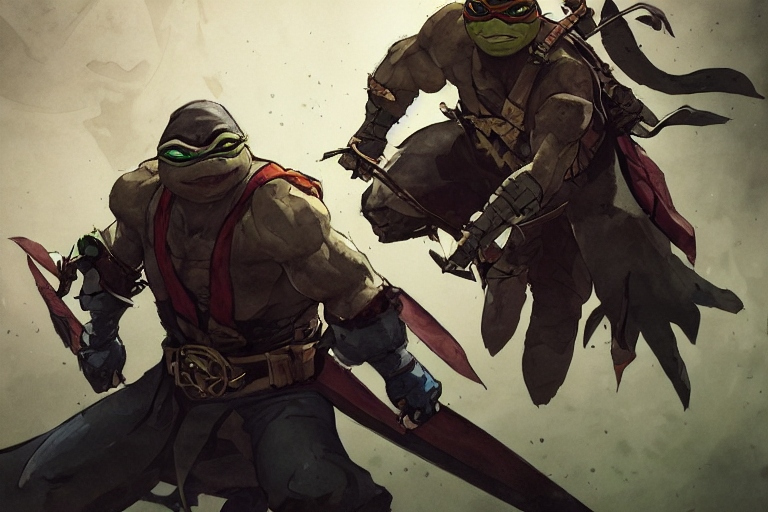There are but two necessary knives. A chef’s knife and a paring knife. Sharpened appropriately. Usually not even a paring knife but sometimes the small size is beneficial.
I’d include a santoku in there, and probably some scissors. Sometimes you just need the straight edge of a santoku, instead of the curved edge of a chef’s knife.
And sometimes serration is necessary. You’ll blunt your chefs knife on certain sourdough crusts, or crush softer breads, but a bread knife will glide right through.
Bread knife would like a word. Chef knife technically works but bread knives are usually longer and work much better at cutting without smooshing.
Scissors too. A good pair of kitchen scissors makes slicing small vegetables like green onions much easier.
Holy shit I never thought about using the scissors on actual food, I’ve only ever used them to open packages containing food
Also great for cutting a pizza.
Sharpen your knife. If it’s not able to cut bread or tomatoes without smooshing it needs sharpening.
I definitely need a bread knife to properly cut good bread, if only for the teeth. The bread I eat is more dense and has a hard crust compared to say American wonderbread. I also like to dry out some of it and then double toast slices for that extra crunchiness. No way a smooth edge can deal with that.
I was a professional cook (up to sous chef) in fine dining for a decade. Guess I’m just an amateur yet.
Well good for you, i guess you cooking anecdotally in fine dining invalidates my experience entirely. All of a sudden the bread parts itself on my chef knife like the red sea for moses.
Perhaps you just need to learn to use the knife properly. Knives also need a steel which should be used regularly. Blunting a knife on a crust shouldn’t be a thing if you keep your blade sharp. That’s the point.
I can cut bread and tomatoes. A bread knife does a better job with bread.
And a filet knife does better with fish. And a boning plus a slicing knife does much better with meat. Not my point but that’s ok.
A butter knife could cut them all too.
Bread knives are so much nicer to cut bread with though. But yeah, a chef’s knife and a paring knife are all you “need”.
in my experience, granton blades just make the food stick more. i always figured it was just a lazy way for companies to save on materials.
It doesn’t help them save on material since the knife is ground from an originally flat slab of steel. The amount of material they remove from that bar is irrelevant to their materials cost, although it does add a bit of machine work.
The scallops in the blade are effective at preventing some foods from sticking only if you are using a long slicing motion. When chopping down from above they accomplish nothing.
that settles it - i’m just a bad choppa
Get to it!
I will add another bullet point to the list above, specifically regarding cutting boards. Poly cutting boards are also acceptable and primarily what I use. However, if I see you using a glass cutting board or a plate as a cutting board, or chopping directly on your granite countertop, I am afraid I am going to have a hurt you.
I am, as you can imagine, the default knife sharpener within the circle of my family and friends. However for quite some years I would not sharpen any knives for my sister anymore because she refused stop using her stupid 1980s glass cutting boards. (I believe they were probably actually intended to be serving trays, but good luck making people understand that.) She kept complaining that my sharpening was “no good” because her knives dulled so quickly.
I was eventually able to coordinate with my brother in law who was also sick of it, and we located all of the glass boardlike objects in the house and surreptitiously threw them away.
Doing the lord’s work here.
Is “poly” a local american slang for plastic? Anyway I prefer wood because I’d rather have some wood fibres in my food than microplastic. Not that anyone knows if it’s actually harmful or not
Wood for most stuff, plastic for meat and fish because I don’t want meat juice soaking into the wood.
Fair point
Apparently, surprisingly, bacteria grow/anchor better in plastic. than wood. (wood might still absorb the juices more easily)
And now all my fruits taste like garlic, thanks
Sort of. Polymer, actually. It’s a common end-run around calling something “plastic” outright because that in and of itself is typically a shorthand for “cheap” or “flimsy.”
Anyway, the plastic cutting boards in commercial use (i.e. the ones I use because I am that kind of nerd) are made of high density polyethylene.
As a chef, the only inaccuracy I see here is that bamboo cutting boards are good for knives. They are a great, cheap, sustainable option, but the silica content makes bamboo incredibly hard, and it will dull your blades faster than wood or plastic cutting boards.
What about using the bread knife for meat?
Edit: also what’s “produce”?
The infographic only states that a bread knife is good for bread. It is correct in this regard.
Produce is the general term for fruits and vegetables and things of the like.
The bread knife has markers in the produce, bread, and meat sections
“Produce” is presumably fruit and vegetables, although that’s a pretty broad category to lump together given that so many vegetables behave differently. Consider a tomato versus lettuce or a yam, for instance.
American for fruit and veg.
Digamos verduras en la mejora de América
Thanks!
I don’t see this suggesting a bread knife for meat, but a dull serrated blade beats a worn plain edge for any purpose. And produce is anything grown like fruit and veg.
It’s got produce, bread, and meat highlighted for the bread knife.
The only thing I’ve ever used a bread knife for is bread.
Ah I didn’t see that little spiral graph. I agree with you for anyone who keeps their knives sharp. But if you’re trying to cut thin slices off a roast and have to choose between a bread knife and a dull chef’s knife, I’d likely go for the bread knife. That said, I don’t know they intended it that way, and it totally could have just been an error.
I never understood why people use serrated knives for bread, it gets crumbs everywhere. I use a sharp chef knife instead and it’s much cleaner. I use it for 95% of stuff, there’s no much need for any other.
That’s one way to say you never had anything besides soft buns and bread.
Once you get full grain or (as someone mentioned) a bread with a hard crust, you will wish for a serrated knive.I’m European. I don’t eat soft bread. I think none of you have a sharp knife.
Oh it’s plenty sharp. My finger tested it :)
If you’re cutting soft soft bread, then a plain blade is fine, but if it’s a crusty bread like a sourdough, the serrated blade is much better at cutting the crust without crushing the soft interior (IME, not a chef)
Bamboo cutting boards suck because you can’t put then in the dishwasher. They break apart from the heat, which also means that you can’t get the water hot enough to sanitize (140°F+), so hand washing is a non-option either without burning yourself.
The best cutting boards use end-grain for this exact reason. It’s not just a decorative thing. The direction of the wood grain directly determines how quickly the board will dull your knife. Wood is made of two main parts: A hard fiber, and a soft filler in between each fiber. The hard fiber is what dulls your knife when you cut.
Imagine cutting on a tightly packed bundle of really tiny straws. If you cut across the bundle, your knife will be cutting into each straw, dulling in the process. But if you cut on the end of the bundle, the knife blade will slide between the straws instead of cutting them.

The straws will last longer when you’re cutting on the end (because you’re not cutting them) and your blade will last longer (because it isn’t cutting the straws). And an end grain cutting board is essentially cutting on the end of the straw bundle.
For an onion, I’ve never diced it by making the cuts indicated by number 1, figuring the layers essentially do that for you. Am I doing it wrong?
I radially dice my onion. To me it seems like the horizontal and vertical cuts leave more uneven bits considering the layers already present. I angle my “vertical” cuts towards the center, then start chopping.
Not wrong per se, but you’ll end up with more inconsistently sized pieces if you don’t do those initial cuts in my experience
No, people do it both ways and you’ll even find both techniques by the pros. But anybody claiming it makes them more even I really don’t think is thinking it through. By adding the extra cut across those natural layers, you’re actually making to very small bits when the crosscut is near the layer boundary.
That’s why I think it is not only easier but superior not to add the crosscut.
—-
darn I need to save this 🔖
- Why is this a jpg?
- No need for the horizontal onion cuts
- Nice guide nevertheless
There is one knife I find absolutely essential that is missing:
Bec Oiseau. Sometimes also known as a sheep’s foot knife.
It’s a paring knife, but one where the blade is absolutely straight and it’s the spine that curves over near the tip. It works far better than any curved paring knife at cutting apart small items in the hand, like fruits.
Bec oiseau (bird’s beak) knifes have a curved blade…

Chinese chef knife is missing. It’s not a meat cleaver, the blade isn’t nearly thick enough for it, but it does make quick work of veg. It’s also one of the only knives used for Chinese cooking. Learned about it from Martin Yan.
The chopping/grip advice is missing a critical component: your two farthest forward knuckles on your non-knife hand should be contacting the knife blade at all times. This gives you precise control and you know exactly where the cutting surface is. It takes a lot of practice to do properly, but that is how the pros do it. I recommend this video from Jacques Pepin for an example: https://youtu.be/nffGuGwCE3E
This should be noted that the knife part is only for western style knives. Same with the cutting technique. That’s only for a curved type blade.
I can’t even find a proper curved blade in most western kitchens I’ve visited…smh
Are you saying that the chef knives they have are too straight for your liking? As you want more rocking motion. Probably best bet is a custom knife.
A chefs knife is fine. I’m saying most people buy shitty knives that are not chef’s knives.
I just use a small knife and a big knife. This covers all use cases. Yes they also cut bread because I keep them sharp.
I see the diagram: the first knife is for cutting bread. The second is for cutting fillets. The third is for cutting… chefs?
What would this kind of knife be called? Japanese brand, and I use it like a chef’s knife, it can rock, but it’s like upside down from an American chef’s knife.
It is so damn sharp though, I can get the thinnest slices.
The chopping technique is not really that necessary. It’s great for chopping lots of veggies at speed, but if you’re just cutting veggies for a single meal then there’s not that much benefit unless you’re already highly practiced and that’s your default.
What’s far more important is just being cognizant for each cut you make. Walk don’t run.
The chopping technique is about eliminating risk, mostly. Sure for a single meal and being aware you’ll be fine. But getting into the habit of a good technique means you’ll be fine even when you’re tired or distracted
If you want to spend the time and effort to practice that technique, go for it. But the benefits don’t really make it worth it for most people.
into the habit of a good technique means you’ll be fine even when you’re tired or distracted
The technique described in the image is not the only “good technique”. A person could reasonably develop their own “good technique” simply by being cognizant of their cutting.











